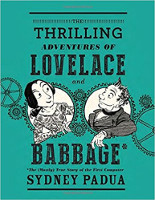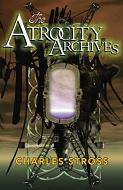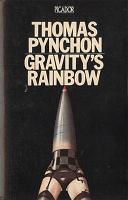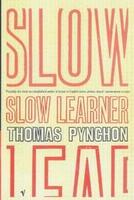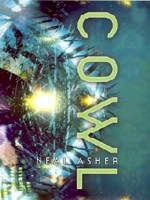 Here are my notes from reading Cowl, a stand-alone novel (save for a short story in the same universe) by Neal Asher, and can recommend it as the best Asher I've read so far. In a nutshell it's the story of Polly, a 22nd Century human, who gets tangled up in a war, raging across history, between two factions of 43rd Century post-humans civilizations, plus the Preterhuman Cowl, who sits and waits for his prey at the beginning of life on Earth. Definitely one for your reading pile.
Here are my notes from reading Cowl, a stand-alone novel (save for a short story in the same universe) by Neal Asher, and can recommend it as the best Asher I've read so far. In a nutshell it's the story of Polly, a 22nd Century human, who gets tangled up in a war, raging across history, between two factions of 43rd Century post-humans civilizations, plus the Preterhuman Cowl, who sits and waits for his prey at the beginning of life on Earth. Definitely one for your reading pile.
Some history first – after the Muslim Jihad, the Resource Wars and the following Nuclear Winter Civilization as we know it fell, mainly due to our unfortunate tendency 'to breed weak humans and strong plagues' – ie our medicine and abuse of antibiotics. Out of this 2nd Dark Ages the Umbrathane (literally 'those who lead out of shadow') arose, breeding humans, exterminating weak strands, the full hog of Eugenics, way beyond anything the Nazis and Stalinists every did.
But the Umbrathane fell into factions, fighting amongst themselves, and from this emerged, in the 43rd Century, the Heliothane Dominion (the Heliothane were their Engineers – talk about the Geek inheriting the Earth!) taking over, and exterminating all other factions who didn't escape or accede to the empire/dominion.
Together with those Umbrathane that fled into the past there went the Preterhuman Cowl, the result of genetic cross-breeding, both apex and ultimate failure of the Heliothane breeding ambition.
Back in the 22nd Century - after the Big Heat, the European Space Station, and the flooding - things are a bit more familiar. Polly, a Heroin dependent street whore, has been augmented with a (stolen) tactical AI by the former Special Forces Soldier Nandru. During a botched handover of ransom she is, for lack of a better word, joined with a Tor; a scale shed by Cowl's multi-dimensional pet, the Torbeast. This Tor keep pulling her back through time, towards Cowl, with short episodes she can live out inbetween, before she jumps again. Tack, the U-Gov Agent who was chasing Nandru (for the AI and the Tor!) is dragged back with her, but soon encounters the Traveller Saphothere, a Heliothane who has spent most his life hunting the Umbrathane through the centuries, and learns that his metier has become even more violent and bloody in the future.
The story plays, as you can tell from the above, in a complex and well thought through universe. The main technologies and concepts that make it tick are as follows:
Time Travel (just to start with the biggie!), requiring huge amounts of 'vorpal' energy, generated by living things (the time travelling pods, called 'Mantisals', are semi-alive). The actual amount of energy you require for a jump between time lines depends on the probability of where you are, and where you're going; and these values keep changing as you enter a timeline, and thus start changing it (classic EWG model). Overall a very clever concept, with a few logical gaps in the story, though.
Genetic Engineering – we encounter rejuvenation (access is restricted), regenerative abilities like re-growing lost limbs, and general fast healing. There also are some cross-species experiments, like Cowl and his sister Aconite (great play on words there), with rather mixed results.
Cerebral Programming – literally, with a plug in the back of the head, at least in Tack's case. Tack has the ability, Umbrathane have the ability, Heliothane do – go figure what enabled humanity to develop and pull past the 2nd dark age! Together with this goes augmentation, mainly seen in Muse, the personal battle AI that Nandru has stolen, and given/attached to Polly.
This is, at least for Neal Asher, a very complex book, and I enjoyed it tremendously. The character development is still very limited (no surprise there for Asher), but the complexity of the coherent environment, and the quite extensive, multi-layered plot is very impressive (and all the more so as the last Asher book I read was Prador Moon, which is disappointing on that count), and complements the action based story-telling style really well.
The back story, with cross/double-cross elements, plots within plots etc is slowly revealed as we go along, partly through the story, partly through information exchange between characters (obviously aimed at the reader), and partly through the short flashback scenes which precede each chapter.
The EWG model he uses to model the time travel elements is spot on, and sidesteps most issues that usually come with time travel setup (it all boils down to probability, and energy for changes, i.e. meeting yourself is so improbable that the energy requirements are humongous). This setup also means that the Grandfather Paradox actually becomes smaller the further you jump into the past – an interesting concept, and open to dispute I suspect.
The action is a touch less bloody/gory the in the usual Asher story, whilst the Plot/Story are a cut above average – this is the best Asher I've read to date, and I can recommend it whole-heartedly. The main complaint I had whilst (re-)reading this is that some of the 'historic' episodes Polly lands in appear more than a bit contrived, but these are but a small part of the story, and thus a very minor niggle indeed.
Title: Cowl
Author: Neal Asher
Reviewer: Markus
Reviewer URL: http://skating.thierstein.net
Publisher: Tor
Publisher URL: http://www.toruk.com
Publication Date: 2005
Review Date: 29 Jan. 08
ISBN: 9780330411585
Price: UKP7.99 RRP
Pages: 469
Format: Paperback
Topic: SF
Topic: Time Travel


